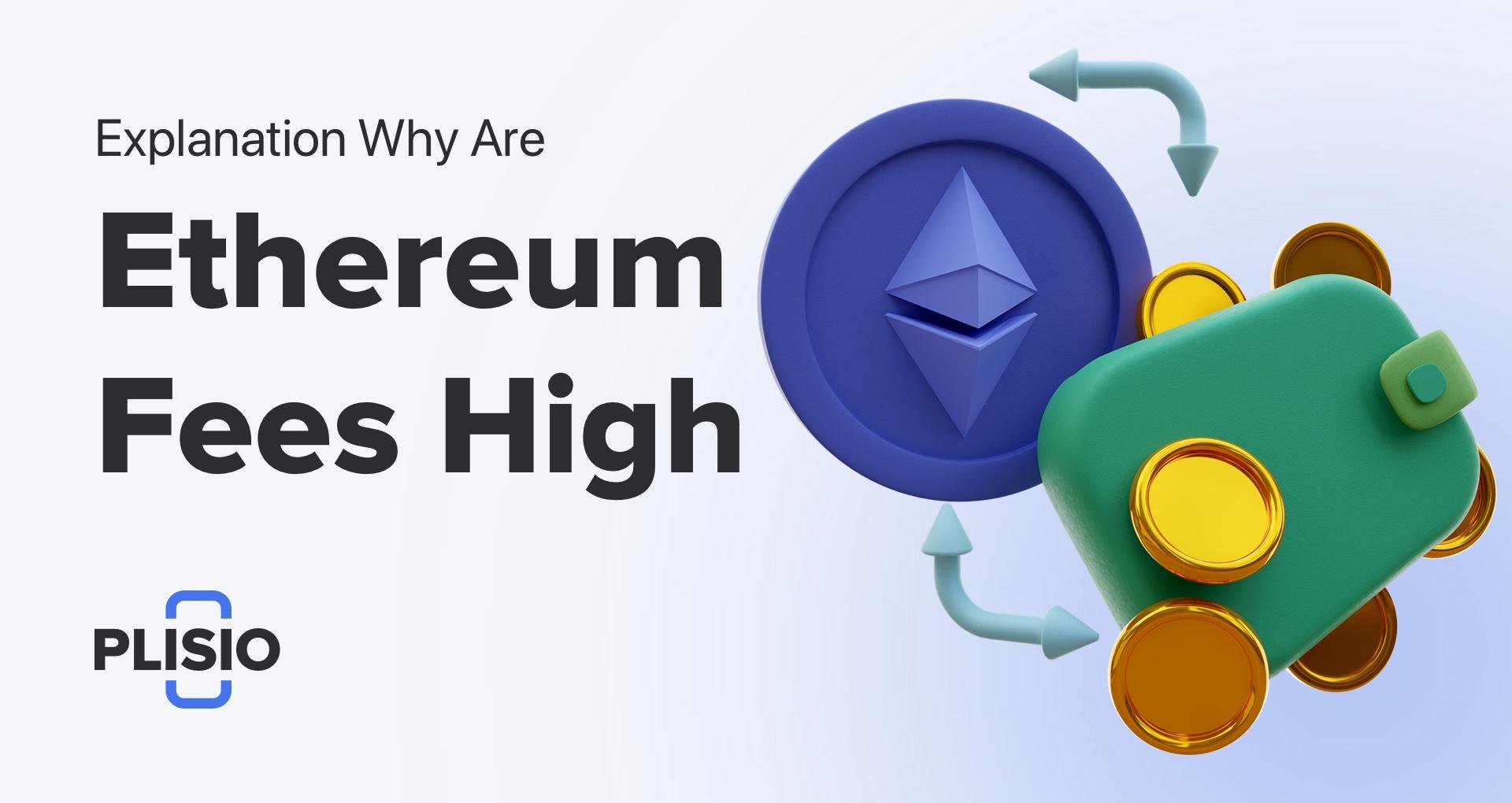Why Are Ethereum Fees Are so High and How to Reduce Them

Cryptocurrency traders and holders are often deterred from transacting in Ethereum due to the blockchain high gas fees. Especially during mempool congestion, users may hesitate before paying steep fees leading them to sit on the sidelines. Despite this, Ethereum remains the top smart contract platform in Web3 due to its advanced programming capabilities and established developer community. However, the platform faces one significant issue: gas fees. What is the rationale behind charging gas fees? Are they necessary, and why do they continue to increase over time?
In this article, we will explore the economics behind high fees and all the strategies to reduce them in the future.
Types of Fess and How They’re Determined
In order to transact on the Ethereum network, traders are required to pay a fee called "gas". This fee is necessary to prevent the network transaction spamming as Ethereum blocks have limited space. The gas fee is used to prioritize which transactions will be included in the next block.
Gas prices are denoted in a smaller denomination of ETH known as "gwei", where one gwei is equivalent to 0.000000001 ETH (10-9 ETH). Using gwei as a unit of measure is more practical, as it allows for easier calculation of a gas fee without dealing with extremely units like 0.000000001 ETH.
Fees are calculated according to the scheme below:
Total fee = gas units (limits) x (base fee + tip)
The gas units, or limit, refer to the maximum amount a user is willing to pay in gas fees to add their transaction to a block. While it may seem logical to select the lowest possible limit for each transaction, such low limit transactions are automatically considered low priority which leaves a transaction in the pending list for a considerable amount of time.
The base fee represents the amount of gas required to process an activity on the Ethereum blockchain, and it depends entirely on the current network load. If the network is overloaded, the base fee will likely increase for everyone.
The tip, or priority fee, represents the additional amount of ETH (or gwei) you're willing to spend to increase priority of your transaction for validators. Offering a financial incentive in the form of a tip encourages validators to process your transaction faster.
Why Are Fees Increasing?
Ethereum gas fees tend to increase over time, despite daily fluctuations. This is largely due to the high network demand. With hundreds of thousands of users and over a million daily transactions, the resources needed for block validation increase, leading to higher gas fees.
Gas fees are not unique to Ethereum, and some other blockchains also charge validators in different ways. However, Ethereum's gas fees are well known in the crypto market because they are higher than those of competing blockchains.
If you wish to get started with Ethereum due to popularity, advanced programming capabilities or established developer community, you can easily do so with a cryptocurrency payment gateway. Such payment gateways are used for accepting cryptocurrency payments for your goods or services, making the whole process as seamless for a business owner as possible. One good example of such a gateway is Plisio. Not only get you a free cryptocurrency wallet to hold and manage your crypto, you also are offered a set of useful business growing tools at the lowest fees on the market.
How to Reduce High Ethereum Fees
If you're worried about high gas fees when conducting an ETH transaction, there are several factors to consider.
To minimize the amount of ETH gas fees you pay, you can lower the base fee or wait for network low activity periods before conducting your transaction. Web3 wallets like MetaMask allow users to customize transaction fees, but submitting a transaction with a below-market base fee is not recommended, as it may result in a transaction being stuck. Instead, wait until base fees fall below your chosen threshold to transact.
Consider waiting for low network activity to conduct your transactions, as this can increase the transaction validation priority if priced appropriately. It may be helpful to study the specific activity periods for your country and predict when gas fees are likely to be lowest.
Weekdays from 3:00 PM to 8:00 PM (GMT) tend to be the busiest and most expensive times, as the US and EU are fully active during these working hours. However, the lowest ETH gas prices on weekdays occur from 7:00 AM to 11:00 PM (GMT) when most of America is asleep, and Europe is just starting its day. You can also consider making transactions on a Sunday from 3:30 AM to 5:30 AM (GMT).
Using Layer-2 solutions, such as Polygon can also help reduce gas fees. It is a separate blockchain that operates on top of the Ethereum network and offer drastically lower gas fees. Layer-2 solutions like Polygon helps address Ethereum's scalability issues by offloading transactions from Ethereum, saving users up to 99% of the gas fee imposed by the Ethereum Network.
How to Get Started with Ethereum
If you're looking to start transacting in Ethereum without waiting for ideal network activity periods, the Plisio cryptocurrency payment gateway is an excellent choice. Additionally, if Ethereum fees are too high for your business, you can easily accept crypto payments in coins that operate on more cost-effective blockchains. Plisio offers the widest range of accepted cryptocurrencies and the lowest merchant fees, as well as a variety of tools to expand your business capabilities, including bookkeeping, mass payouts, invoicing, and a ready-made customizable Donation Page. Other benefits of Plisio include free registration and setup, 24/7 live chat support, automated mass payouts, enhanced privacy and security, and a multi-currency account. Take advantage of the trending integrations and start growing your business with cryptocurrency today!
